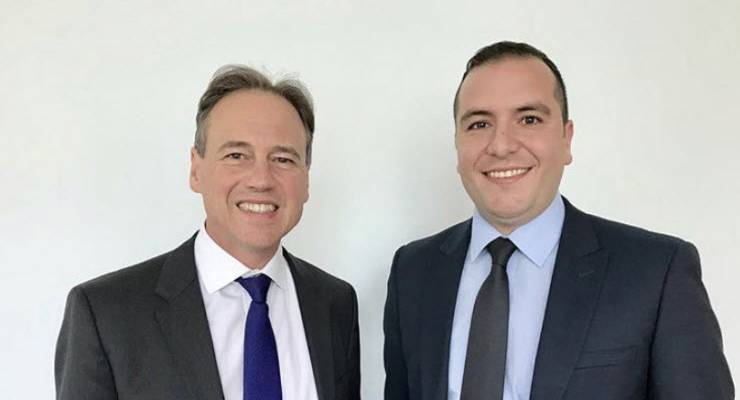
How do you calculate the power of Pharmacy Guild of Australia to influence government policy?
One measure could be the $20 million grant — the largest ever in Australia for pain and pain medicine — handed to the guild for a trial of pain assessments by pharamacists, supported by Health Minister Greg Hunt.
The grant, which outraged doctors when it was announced in 2018, continues to be criticised by Australia’s leading pain specialist body, the Australian and New Zealand College of Anaesthetists.
The college told Inq the $20 million grant was “by far” the largest grant ever in Australia for pain and pain medicine — “and this to an organisation that has no track record in basic science or clinical pain research or in fact no association with academia,” the college said.
Our investigation last week into the guild’s network of relationships with politicians from the prime minister down — including Deputy Prime Minister Michael McCormack donning an official guild tie for happy snaps — has flushed out pent-up frustration at the degree of influence the guild wields.
Dr Meredith Craigie, dean of the college’s faculty of pain medicine said the scheme had been introduced with “no input” from specialist pain medicine physicians and that it risked promoting medication as the only option to relieve chronic pain. (Pharmacists are also paid a set fee per prescription.)
“There is no question that the guild is an influential employers’ organisation for pharmacists but we would hope that federal and state governments are not unduly influenced by some groups at the expense of others,” she said.
“Already we have seen advertisements where pharmacists are portraying themselves as experts in pain management and offering to be the primary provider of personalised pain management action plans. This is frankly misleading advertising and makes the work of well-organised primary and tertiary pain teams much more difficult by fragmenting care.”
The guild rejected the college’s criticism, saying that the trial focussed on inter-professional collaboration, “referral to other health practitioners as required”, and that it included “non-pharmacological” pain management.
In a statement, the guild said it had partnered with academia and engaged an expert panel including members from the Australian Pain Society, Chronic Pain Australia, the Pharmaceutical Society of Australia, University of Wollongong and the Australian Government Department of Health and Ageing.
Inq’s investigation last week discovered close to 40 pictures of guild officials posing with Coalition ministers and backbenchers as well as senior state politicians.
The photo gallery represents tangible evidence of the guild’s much-touted power, normally wielded away from public scrutiny. There is no doubt more evidence to be found.
But why should journalists or citizens need to trawl the internet searching for images — and hope social media accounts have been left open — to know who is influencing the government’s health policy, and how?
And to discover that the guild and Health Minister Greg Hunt at one point held “great discussions”, according to the boast of one guild official’s Instagram post?
The Pharmacy Guild of Australia is an influence peddler par excellence but its activities are enabled by rules in Canberra that do little to cut down on lobbying or to allow any transparency.
Inq obtained evidence of soft influence peddling such as the guild hosting the prime minister for Christmas drinks, and the deputy prime minister (plus a host of other politicians) letting their hair down at the guild’s annual parliamentary ball. Yet none of these contacts with the guild need to be recorded for public scrutiny.
At the same time the influence-peddling business is on the up.
Answers to questions on notice provided to Centre Alliance Senator Rex Patrick and Greens Senator Larissa Waters last year revealed that over the period of Coalition government there has been a near doubling of sponsored passes — the orange lanyard — given to lobbyists and others to roam parliament unescorted.
Independent Senator Jacqui Lambie told Inq: “Those orange passes are rolled gold to lobbyists. With a pass around their neck, lobbyists get to walk the hallways and get direct access to ministers in a way that just isn’t possible for normal people. The fact that the number of pass-holders is growing should make us nervous, especially given our loose regulations on lobbying in the federal parliament.”
“Australians are in the dark as to who these orange passholders are, whose interests they represent and what they’re actually doing here,” Lambie said.
The Department of Parliamentary Services says it does not keep a record of who the lobbyists are among the ever-growing ranks of orange pass holders. Nor is the information available under freedom of information laws.
Greens Senator Larissa Waters told Inq the Greens’ policies “to clean up politic” included requiring politicians to tell the public when and why they meet with lobbyists as well as establishing a strong, independent federal anti-corruption commission.
Next: why the rules governing lobbying are toothless…








$20 million more to add to this government’s rorts behaviour!